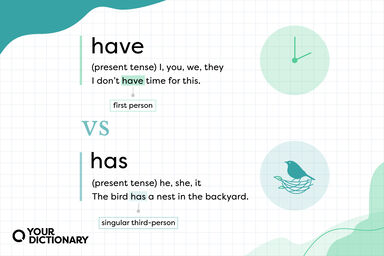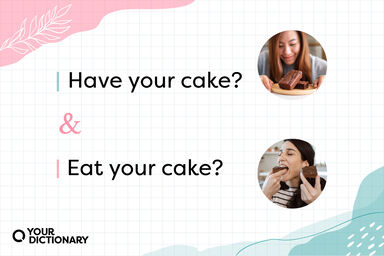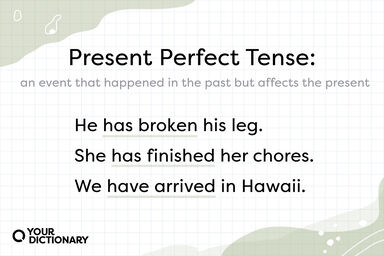Have Definition
- wealthy person
- rich person
- To be inclined to (do something).
- To be wise or obliged to; should or must:
He had better do what he is told. You had best bring a raincoat in this weather.
- To stop; cease:
Have done with your quibbling!
- To have endured all that one can:
I've had it with their delays.
- To be in a state beyond remedy, repair, or salvage:
That coat has had it.
- To remember or think of:
She has your best interests in mind.
- To intend or be inclined (to do something):
I have in mind to sell the house.
Idioms, Phrasal Verbs Related to Have
- have a mind to
- had better
- have done with
- have had it
- have in mind
- have it
- have
- have
- have
- have it out
- have
- have (something) coming
- have
- have to do with
- have a mind to
- had better
- have done with
- have had it
- have in mind
- have it
- have
- have
- have
- have it out
- have
- have (something) coming
- have
- have to do with
- have at
- have done
- have had it
- have it good
- have it off
- have it out
- have on
- have to be
- have to do with
- to have and to hold
Origin of Have
-
From Middle English haven, from Old English habban, hafian (“to have”), from Proto-Germanic *habjaną (“to have”), durative of Proto-Germanic *habjaną (“to lift, take up”), from Proto-Indo-European *keh₂p- (“to take, seize, catch”). Cognate with West Frisian hawwe (“to have”), Dutch hebben (“to have”), Low German hebben, hewwen (“to have”), German haben (“to have”), Danish have (“to have”), Swedish hava (“to have”), Icelandic hafa (“to have”), Latin capiō (“take”, verb), Russian хапать (khapat', “to seize”). More at heave.
From Wiktionary
-
Since there is no common Indo-European root for a transitive possessive verb have (notice that Latin "habeo" is not related to English "have"), Proto-Indo-European probably lacked the have structure. Instead, the third person forms of be were used, with the possessor in dative case, cf. Latin mihi est / sunt, literally to me is / are.
From Wiktionary
-
Middle English haven from Old English habban kap- in Indo-European roots
From American Heritage Dictionary of the English Language, 5th Edition
-
Middle English haven from Old English habban kap- in Indo-European roots
From American Heritage Dictionary of the English Language, 5th Edition
Find Similar Words
Find similar words to have using the buttons below.





